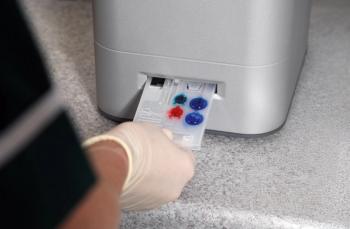
Mind Over Miller: Ah, the Electronic Age
Long before my father was born, the world must have marveled at the steam engine.
Long before my father was born, the world must have marveled at the steam engine. And Dad recalled how exciting it was when the automobile and airplane arrived. I'll never forget how thrilled my family was when we got an electric refrigerator and, finally, an electric washing machine.
But now have we gone too far?
For example, I don't like these self-flushing public toilets. They flush when they want to, not when I want them to. And nowadays when people say, "Give me a call," they have to give you their telephone numbers (home and office), cell phone numbers, fax numbers, and e-mail addresses. Then you never get to speak to them: "I'm not at my desk right now, so please leave a message."
You're not at your desk? Where are you? I know where you aren't. So I leave a message, and, eventually I get an answer—on my answering machine.
Next let's talk about alarm clocks. When a power failure occurs, all the clocks in the house stop. Keep in mind that power failures are becoming more frequent. With a wind-up clock, you don't need electricity. Think of the fossil fuel you'd save if you used a hand-wound alarm clock.
That brings us to battery-operated toys. How much exercise do children get changing the batteries in a toy robot or toy guillotine? Is it any wonder kids don't play with blocks anymore? They can't be electrified.
Another great invention: car alarms. Does anybody pay attention when a car alarm goes off in a parking lot? Of course not! It's called habituation. Do you look up when you hear an airplane?
Now, I'm not against all uses of electricity. I thought the electric cattle prod was a great invention. But, if I had to, I could live without a microwave oven, tennis shoes that blink when you walk, and these electronic gadgets for removing unwanted hair growing from your nostrils if you're male or your upper lip if you're female.
Medically, of course, electricity has changed everything. One of my friends was having gastrointestinal problems, so she went to see a gastroenterologist. An aide took her history. Then the board-certified specialist, without ever doing a physical examination or an auscultation or palpating the abdomen, ordered thousands of dollars worth of endoscopy and colonoscopy. The mantra in medicine used to be "First, do no harm." Now, apparently, it's "First, protect yourself against litigation." Ordering a barrage of probably unnecessary tests is not malpractice, but failing to do an examination is, isn't it?
The changes are even happening in our profession. Scalpel blades used to cost a dime. Now we need a multithousand-dollar laser apparatus. And the electronic monitoring devices! It used to be so simple; we'd just ask, "Is she still breathing?"
I watched a young veterinarian evaluate a dog with a limp. The owner said that the dog limped all the time at home but that he wasn't limping now because he was excited. The doctor watched the dog walk up and down the hall and saw no limp. And without palpating the patient's limbs or carefully flexing every joint and manipulating every soft tissue structure, the doctor announced the electric solution: "We'll need to take some radiographs!"
Of which leg? Of which part of the leg? What are the presumptive diagnoses? What views would most likely confirm or negate these possibilities?
When the radiographs showed no abnormalities, what did our colleague do? He prescribed an NSAID and recommended a heating pad—electric, of course.
Robert M. Miller, DVM, is an author and a cartoonist, speaker, and Veterinary Medicine Practitioner Advisory Board member from Thousand Oaks, Calif. His thoughts in "Mind Over Miller" are drawn from 32 years as a mixed-animal practitioner. Visit his Web site at
Newsletter
From exam room tips to practice management insights, get trusted veterinary news delivered straight to your inbox—subscribe to dvm360.






